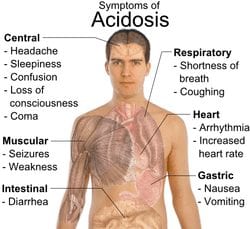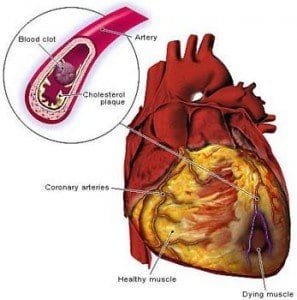Diabetes can lead to many uncomfortable diseases and problems. Many people however are dealing with one problem that has been common for many years and can be most painful to them and their body, Dental Disease. Dental Disease has been known about in its connection with diabetes for some time; however that doesn’t make dealing with it any easier. There are bigger problems in dealing with diabetes such as Hyperglycemia; dental disease comes in, in sixth place amongst they opathy’s that is related with diabetes. Other complications include vasculopathy, retinopathy, and nephropathy also including autonomic and peripheral neuropathies.
 Dental Disease And Diabetes: Diabetes can lead to many uncomfortable diseases and problems. Many people however are dealing with one problem that has been common for many years and can be most painful to them and their body, Dental Disease. Dental Disease has been known about in its connection with diabetes for some time; however that doesn’t make dealing with it any easier. There are bigger problems in dealing with diabetes such as Hyperglycemia; dental disease comes in, in sixth place amongst they opathy’s that is related with diabetes. Other complications include vasculopathy, retinopathy, and nephropathy also including autonomic and peripheral neuropathies.
Dental Disease And Diabetes: Diabetes can lead to many uncomfortable diseases and problems. Many people however are dealing with one problem that has been common for many years and can be most painful to them and their body, Dental Disease. Dental Disease has been known about in its connection with diabetes for some time; however that doesn’t make dealing with it any easier. There are bigger problems in dealing with diabetes such as Hyperglycemia; dental disease comes in, in sixth place amongst they opathy’s that is related with diabetes. Other complications include vasculopathy, retinopathy, and nephropathy also including autonomic and peripheral neuropathies.
Among those in the world a little over 80% have periodontal disease this is where you have so much inflammation in your and around your teeth that destruction has taken over the soft tissue and bones that surround your gum line and teeth. On the other hand, those with diabetes run a greater risk of developing this disease. It is very important to have many exams in getting older, but it is also important to get many continuous exams when you have been diagnosed with diabetes.
Periodontal Disease takes shape in four-different steps, first gingivitis will be seen. This is where inflammation is noticed around the collar of the gum. Gingivitis however can be avoided and also curable by simply taking better care of both your teeth and gums. Flossing is very important since your toothbrush can never reach plaque that is stuck between your teeth. Secondly early periodontal disease will be noticed and diagnosed. This is when deposits of calculus are seen on the teeth and some destruction starts happening in the teeth. The third step in when this destruction starts to take on a whole new level, however not so much damage has been done that it can’t be prevented and helped. The last step is the worst and most likely there will be no helping it when it has been reached. This is when 50% or more of the bone that supports your teeth has been destructed. You’re teeth begin to loosen which will cause your teeth to eventually fall out.
Dentists use a special tool so that they can check for this disease among your teeth, this tool being referred to as a “probing depth” tester, it does just that. The “Probing Depth” test help Dentists to know how much damage has been done to a person’s mouth and what can be done to save as much tooth structure as possible.
Studies have showed that gingivitis shows up in more children who have diabetes than adults who have it. With the periodontal disease people who have a higher level of glucose will find themselves at risk more for the disease than those who have normal glucose levels. Some different factors however may present this complication in having diabetes and those are abnormal collagen metabolism, decreased polymorphonuclear leukocyte function and if your body seems to be taking longer to heal from wounds that can also be assign.
Sometimes when you find yourself having some high glucose levels, it may not be caused by Diabetes there is a chance that it can be caused by diseases in your oral cavity. The first thing you should do when you have checked for diabetes and it has come back negative but you still have diabetes is get a screening from a dentist. The dentist will ask you some of the following questions before starting the exam.
- Do your gums bleed with you brush your teeth?
- Do you have any pain in your teeth?
- Do you chew foods with out any pain?
You will also be asked about dental history and dental future, whether or not you will be having any work done in the near future. The dentist will then move on to the examination process which entails him/her to look in your mouth for abscesses, hypertrophy, recession of the gums, excessive plaque buildup, inflammation, and of course any decay. If the dentist uncovers the signs and symptoms of dental or gum disease they will refer you to a specialist who deals in diabetes.
There are ways that you can prevent dental disease if you have diabetes however, you first step is definitely the most important and that is to regulate your glucose level. You’ll also need to watch your diet and oral hygiene, you should be sure to watch out for the snacks you are eating in between meals and always wash down any food that you have eaten during meals with a drink. Water is preferable but not everyone drinks as much water is preferred. Sugar is the tooth’s enemy, so stay away from sugary candies, dried fruits, fruit rollups and glucose tablets. It is imperative that you try and see your dentist every 6 months for an exam on how your teeth are doing, that way any problems can be taking care of and rectified before the problem gets to far out of hand.
Four other ways to avoid problems with dental disease is to use cleaning aids that your dentist has recommend, if they have not recommended any then have them recommend you something. Floss at least once a day to remove food and plaque between your teeth. Always use a soft bristle brush to brush your teeth others are too hard and could end up hurting your teeth. Finally do not smoke or chew tobacco that is like polishing your teeth with acid very slowly.
If it is too late and you already have dental disease then you will first need to hear some treatments from your dentist. On the other hand, many people do not like taking medication that is produced over the counter by pharmacies. So question your dentist about any herbal medication you might be able to take to help turn around your complication in the mouth. One know herb has helped many people in the area of diabetes for years, Bilberry. Bilberry is blueberries cousin and can be found in the forests of the United States and Europe.
Some people choose to eat bilberries and cream like yogurt, this provides the much needed antioxidants to your body which helps your immune system to fight infections. However, both the leaves and ripe fruit have been used to treat diabetes. These berries do nothing for lowering blood sugar but the help to produce more strength to the blood vessels and lessen the damage that is done to the vessel in which are associated with diabetes. You can also use bilberry extract which can reduce some of the tingling sensations in your arms and legs that you feel when developing neuropathy. Some studies show bilbeery extracts to help dilate veins and arteries. They also help to keep platelets from clumping together, which will thins the blood which will in turn improve circulation.
Eye problems can also be helped with bilberries; such as diabetic retinopathy, night blindness, degeneration of the macula and cataracts. You should always ask your doctor before taking any herbal medicines since some have been known to have some bad side effects with having diabetes. You could also try some of these herbs listed.
- Propolis – it’s a bee product which helps to stimulate the creation of new tissue, it is anti-viral and helps those who are suffering from mouth sores and ulcers.
- Myrrh – is an astringent from North America and Arabia.
- Bloodroot – comes from the eastern woodlands and helps to fight plaque and the decay that is causing bacteria.
 Lactic Acidosis is a term that describes high levels of lactate in the blood. Lactate is the by-product of the breakdown of sugar in a person’s body. It is rare, but people who have Lactic Acidosis can become very ill, and even die from having it. Lactic Acidosis is caused by damaged mitochondria. Mitochondria are cellular machines that are found in cells that are known to produce energy. People who suffer from Diabetes can get Lactic Acidosis.
Lactic Acidosis is a term that describes high levels of lactate in the blood. Lactate is the by-product of the breakdown of sugar in a person’s body. It is rare, but people who have Lactic Acidosis can become very ill, and even die from having it. Lactic Acidosis is caused by damaged mitochondria. Mitochondria are cellular machines that are found in cells that are known to produce energy. People who suffer from Diabetes can get Lactic Acidosis.


